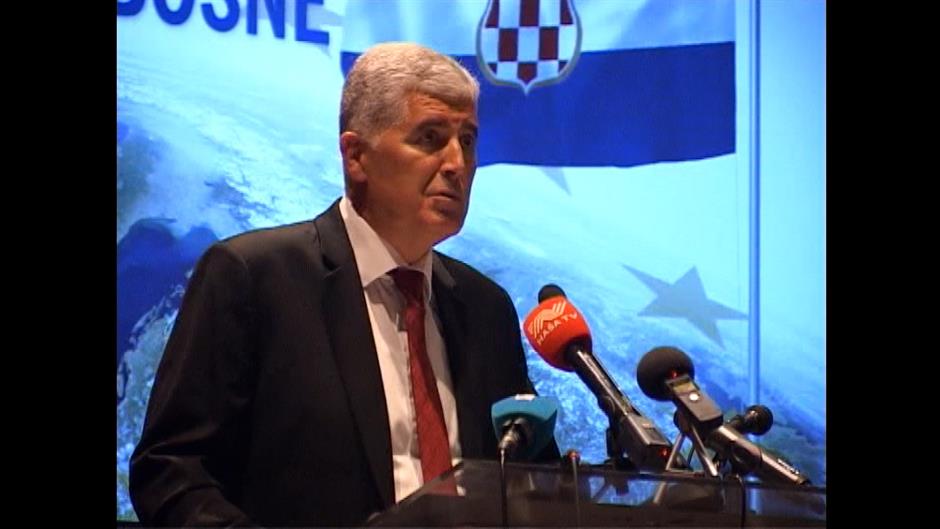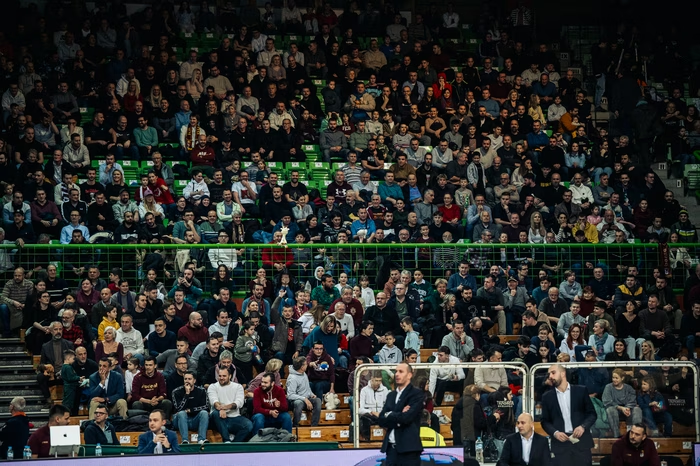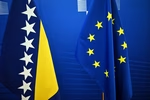Croat leader addresses event in honour of Herzeg-Bosnia

There would hardly be Bosnia and Herzegovina if there were no Herzeg-Bosnia, Croat member of Bosnia’s tripartite Presidency, Dragan Covic, said Tuesday in Mostar at a ceremony marking the 25th anniversary of Herzeg-Bosnia, self-declared Croat political structure.
Oglas
“Had there been no Croat Republic Herzeg-Bosnia, it’s not likely we would be here, have Bosnia and Herzegovina,” Covic said at a solemn academy organized on the occasion of this anniversary.
The manifestation started earlier on Tuesday with the laying of wreaths at the grave of Herzeg-Bosnia President and a holy mass at the Mostar Cathedral.
Some Croat representatives, including Bozo Ljubic and Zeljko Raguz, addressed media, speaking of the importance of observing this anniversary.
Oglas
Former Herzeg-Bosnia official, Vlado Soljic, said that Croats survived on these territories owing to the Herzeg-Bosnia. According to him, negative comments regarding this political structure were intended to “disable Croats in their fight for equality.”
Herzeg-Bosnia was first established as a Croat community in the south of Bosnia and Herzegovina in 1991. Its founders were Croat nationalists led by the Croat Democratic Union (HDZ BiH).On August 28, 1993, it declared itself a republic and changed its name into the Croat Republic of Herzeg-Bosnia.
The International Criminal Tribunal for former Yugoslavia (ICTY) convicted in 2013 six high-ranking officials of Herzeg-Bosnia for war crimes against humanity, violation of the laws or customs of war and grave breaches of the Geneva Conventions committed between 1992 and 1994.
All six were found guilty for their participation in a joint criminal enterprise (JCE) with the objective of “removing the Muslim population from the territories on which the Bosnian Croat leadership, acting in concert with the leadership of Croatia, wanted to establish Croat domination”, according to the ICTY.
Kakvo je tvoje mišljenje o ovome?
Učestvuj u diskusiji ili pročitaj komentare
Oglas
Kakvo je tvoje mišljenje o ovome?
Učestvuj u diskusiji ili pročitaj komentare
Oglas
NAJČITANIJE
Oglas
Oglas
Najnovije
Oglas
Oglas





 Srbija
Srbija
 Hrvatska
Hrvatska
 Slovenija
Slovenija



























































